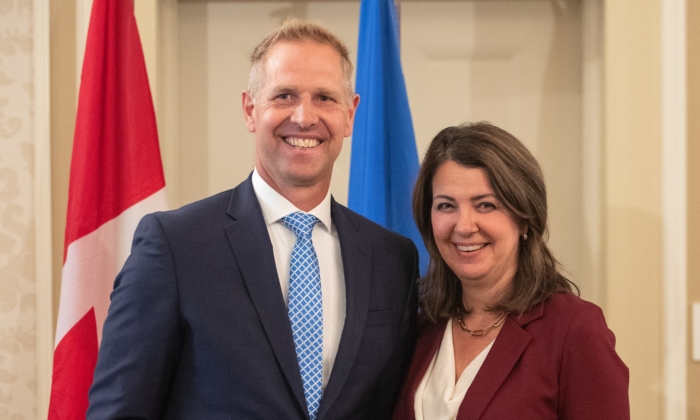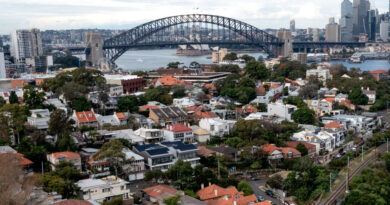Alberta Proposes Laws to Control Excessive Charges on Electricity Bills
The Alberta government is introducing legislation to regulate sizeable surcharges on the power bills of provincial residents.
Utilities Minister Nathan Neudorf tabled a bill April 22 that would ban cities from using variable rates to calculate local access fees on power bills beginning in 2025. Known as Bill 19, it has passed its first reading in the legislature.
“This is a fee municipalities charge to power companies to have their power lines or gas pipelines located within municipal boundaries,” Premier Danielle Smith said during an April 22 news conference. These costs are then passed on to customers in the municipality.
Ms. Smith said the bill will impact Calgary the most because it is the only municipality that calculates local access fees with a variable rate, saying in 2023 the city received $200 million from the fees. The money is put into a reserve fund.
“They’ve known about this for a very long time, they chose to kick the can down the road to 2027, we don’t think that is acceptable,” Ms. Smith said. “That’s why we are making the change to have a uniform policy across the province.”
Calgary residents paid an average of $240 in local access fees in 2022, according to a government press release. In Edmonton, residents paid an average of $75.
Minster Neudorf said they had met with the City of Calgary to discuss the issue in 2023.
“We met with the City of Calgary last fall to make that clear, and we warned them that if they didn’t take action within a reasonable timeframe, we wouldn’t be forced to intervene,” he said during the news conference. “Instead, we saw the Calgary City Council kick that can down the road waiting months to pass a motion to make these changes.”
The Epoch Times reached out to the City of Calgary but did not hear back by publication time.
However, the City did pass a motion to reconsider the calculation of local access fees on March 18, according to CBC News.
“It was a revenue stream for us, but the time to focus on Calgarians and their stability is more important right now,” Mayor Jyoti Gondek reportedly said at the time.
Council changes would not take effect until 2027.
Mr. Neudorf said the provincial legislation was expected to be in effect by Jan. 1, 2025.
Rate of Last Resort
Bill 19 also formally changes the name of the default electricity rate from “regulated rate” to “rate of last resort.”
During an April 18 press conference, Ms. Smith said most customers who sign up for electricity service are automatically enrolled in the regulated rate, which fluctuates each month.
Changing the name of the rate option will “send the right message” that it is a rate to sign up for “when there are no other options available,” she said.
Ms. Smith said the rate of last resort will be set every two years for service providers, ensuring that customers see less price spikes and more certainty about their bills.





